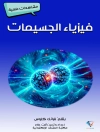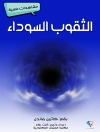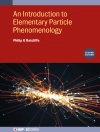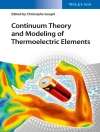Resonant antennas are increasingly employed by the plasma industry, and the theory has now developed alongside the technological applications to the extent that it is timely to document the progress in this field to aid antenna design for future novel RF plasma sources. This reference text explains the complete theory of resonant antennas, from fundamental circuits to mutual partial inductance coupling with plasma. It describes industrial applications, and covers state-of-the-art research in helicon wave physics and sources with plasma diagnostics. The book is divided into four parts, covering resonant network antennas without plasma, antennas in magnetized and non-magnetized plasma, and finally, technology and future developments of resonant network antennas.
Key Features
- Explains the complete theory of resonant network antennas in self-consistent detail, from fundamental circuits to mutual partial inductance coupling with plasma
- Describes tried-and-tested industrial applications, with novel technological solutions and design tips
- Covers state-of-the-art research in helicon wave physics and sources with plasma diagnostics
- Includes futuristic configurations such as phase-locked antennas, 2D networks, toroidal sources
- Matlab programs are provided for the most useful and recurring antenna calculations
Spis treści
1 Introduction
Part I Resonant network antennas without plasma
2 Introduction to resonant circuits
3 Normal modes and dissipative networks
4 Partial inductance and the matrix model
Part II Resonant network antennas in non-magnetized plasma
5 Introduction to inductively coupled plasma
6 Inductive coupling using plane plasma sources
7 Electromagnetic coupling to plasma in large antennas
8 Cylindrical wave functions in birdcage antennas
9 Inductive plasma generated by a birdcage antenna
Part III Resonant network antennas in magnetized plasma
10 Whistler waves in an infinite uniform magnetized plasma
11 Helicon modes in a magnetized plasma column
12 Wave-sustained plasma
Part IV Technology, future developments, and appendices
13 Technology of resonant network antennas
14 Future developments and applications
Appendix A: Expansions near resonance for the dissipative antenna
Appendix B: Impedance matrix calculations
Appendix C: Electron–molecule energy transfer fraction
Appendix D: Maxwell’s equations, plasma permittivity, and skin depth
Appendix E: Theory of the complex image method
Appendix F: Solution of the MTL equations for the EMCP antenna source
Appendix G: Maxwell’s potential coefficient matrix and the partial image method
Appendix H: Impedance of a hybrid antenna with parasitic capacitance
Appendix I: Cylindrical wave function constants
Appendix J: Helicon mode derivations and methods
Appendix K: Link to programs
O autorze
Dr. Philippe Guittienne is a physicist at the Swiss Plasma Center (SPC) in the Basic Plasma Physics and Applications group under Prof. Ivo Furno, and founder of the Helyssen company in 2003. Following an engineering degree in physics (1997) and a doctorate (2002) in condensed matter physics at the EPFL on magnetization reversal in ferromagnetic nanostructures, he completely changed his field of interest to plasma physics with the idea of using resonant birdcages for helicon sources. He founded the Helyssen start-up in 2003, and started a collaboration with Dr. Christoph Hollenstein’s group at the SPC for the development of resonant antennas as plasma sources.
Dr. Alan Arthur Howling is an Adjoint Scientifique/Senior Scientific Collaborator, co-founder of the group for industrial plasmas in 1989 with Dr. Christoph Hollenstein. He is currently a researcher and lecturer in the Basic Plasma Physics and Applications group under Prof. Ivo Furno at the Swiss Plasma Center, EPFL, Lausanne, Switzerland. He obtained a physics degree from Oxford University in 1981, and a doctorate from both Oxford and UKAEA Culham Laboratory in 1985. A postdoc on TCA tokamak in the Centre de Recherches en Physique des Plasmas at the EPFL was the springboard to industrial plasma research for the last 35 years.
Prof. Ivo Furno is Adjunct Professor at the EPFL and leader of the Basic Plasma Physics and Applications (BPPA) group of the Swiss Plasma Center. He graduated in Nuclear Engineering from the Politecnico di Torino, Italy, in 1995 and then he received his Ph D from the EPFL. He continued with a Postdoc at the Los Alamos National laboratory, where he studied magnetic reconnection on the Reconnection Scaling Experiment (RSX), before re-joining the EPFL in 2006. His research is marked by the use of human-scale, dedicated plasma devices to investigate the fundamental physics of plasmas under conditions ranging from fusion plasmas to plasmas of relevance for solar physics and to non-equilibrium cold plasmas for industrial and biological applications.












